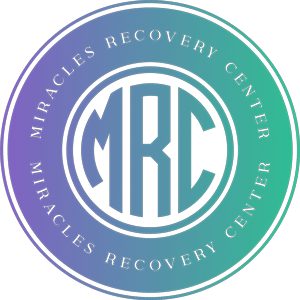Stepping into the realm of drug relapse prevention, the role of family and friends is pivotal. Their unwavering support and understanding can make a significant difference in an individual’s journey towards lasting recovery. Discover how you, as a loved one, can actively contribute to creating a strong support network for someone navigating the challenges of substance abuse and addiction.
Understanding the importance of support networks
Support networks play a crucial role in drug relapse prevention. They provide emotional support, encouragement, and a sense of belonging to individuals in recovery. Family and friends can offer a safe space for open communication, understanding the struggles faced by their loved ones. By being actively present and involved, they help create a supportive environment that bolsters the individual’s commitment to sobriety.
Moreover, the presence of a strong support network can act as a protective factor against relapse triggers. When individuals know they have people they can turn to in times of need, they are less likely to feel isolated or overwhelmed by the challenges of recovery. Family and friends serve as pillars of strength, guiding their loved ones through the ups and downs of the recovery journey with empathy and care.
Building a support network takes effort and understanding. It involves listening without judgment, offering assistance without enabling destructive behaviors, and being a consistent source of positive reinforcement. By acknowledging the importance of support networks in drug relapse prevention, both individuals in recovery and their loved ones can work together towards long-term healing and stability.
In times of vulnerability, the presence of supportive family members and friends can make all the difference. Their unwavering belief in the individual’s ability to overcome challenges serves as a beacon of hope, inspiring motivation and strength during difficult moments. By fostering a culture of understanding and compassion, support networks lay the foundation for sustainable recovery and relapse prevention.
Recognizing warning signs and triggers
One key aspect of effective drug relapse prevention is the ability to recognize warning signs and triggers early on. Family and friends play a crucial role in this process by being attuned to changes in behavior, mood swings, or withdrawal symptoms that may indicate a potential relapse.
By maintaining open lines of communication and observing their loved one’s patterns closely, family members and friends can intervene proactively to prevent a relapse. Offering non-judgmental support and encouragement to seek help when needed can empower individuals in recovery to address triggers and stressors before they escalate.
Educating themselves about the common triggers for relapse, such as stress, negative emotions, or social situations, enables family and friends to provide targeted support and guidance. By working together to identify potential risk factors and establish coping strategies, they create a safety net that helps navigate the challenges of relapse prevention effectively.
Effective communication strategies for loved ones
Communication lies at the heart of effective drug relapse prevention. Family and friends can enhance their support by fostering open and honest dialogues with their loved ones in recovery. Creating a safe space for expressing thoughts, concerns, and emotions cultivates trust and strengthens the bond between individuals.
Active listening, empathy, and validation are essential components of effective communication strategies. By actively engaging in conversations, offering reassurance, and validating the experiences of those in recovery, family and friends demonstrate their commitment to understanding and supporting the journey towards sobriety.
Clear and respectful communication paves the way for constructive problem-solving and conflict resolution within support networks. By addressing challenges openly and collaboratively, family members and friends can nurture a positive and supportive environment that encourages growth, healing, and relapse prevention.
Creating a safe and supportive environment post-rehab
Post-rehab, the transition back to daily life can be a vulnerable period for individuals in recovery. Family and friends play a crucial role in creating a safe and supportive environment that reinforces positive habits and coping mechanisms learned during treatment.
By establishing routines, setting boundaries, and fostering a sense of accountability, loved ones can help maintain a structured and stable post-rehab environment. Providing encouragement, motivation, and active participation in recovery-related activities reinforces the individual’s commitment to a drug-free lifestyle.
Creating a supportive home environment involves removing triggers, promoting healthy habits, and encouraging open communication about challenges and successes. Family members and friends act as allies in the ongoing journey of recovery, offering guidance, understanding, and unwavering support.
Through their continuous presence and involvement, family and friends create a sense of security and belonging that helps individuals in recovery navigate the complexities of post-rehab life with confidence and resilience. By fostering a supportive atmosphere that prioritizes well-being and growth, loved ones play a vital role in preventing relapse and promoting long-term recovery.
Seeking professional help and resources
In the realm of drug relapse prevention, seeking professional help and utilizing available resources is a critical step towards ensuring comprehensive support for individuals in recovery. Family and friends can play a proactive role in connecting their loved ones with qualified professionals, treatment programs, and support services tailored to their needs.
Understanding the importance of professional guidance, family members and friends can empower individuals in recovery to access evidence-based treatments, therapy, and ongoing care. By collaborating with healthcare providers, counselors, and addiction specialists, they contribute to a holistic approach to relapse prevention and long-term wellness.
Encouraging their loved ones to prioritize self-care, attend therapy sessions, and engage in recovery-focused activities, family and friends reinforce the significance of ongoing support in maintaining sobriety. By advocating for comprehensive care and proactive intervention, they play a vital role in safeguarding their loved ones’ well-being and recovery journey.
Empowering Support for Lasting Recovery
As you delve into the intricacies of drug relapse prevention, remember the invaluable role that family and friends play in supporting and empowering individuals in their journey towards sobriety. By fostering understanding, open communication, and a safe environment, loved ones can significantly impact the outcome of relapse prevention efforts. Together, let us continue to stand by those facing addiction, offering unwavering support and compassion as they navigate the path to recovery.





